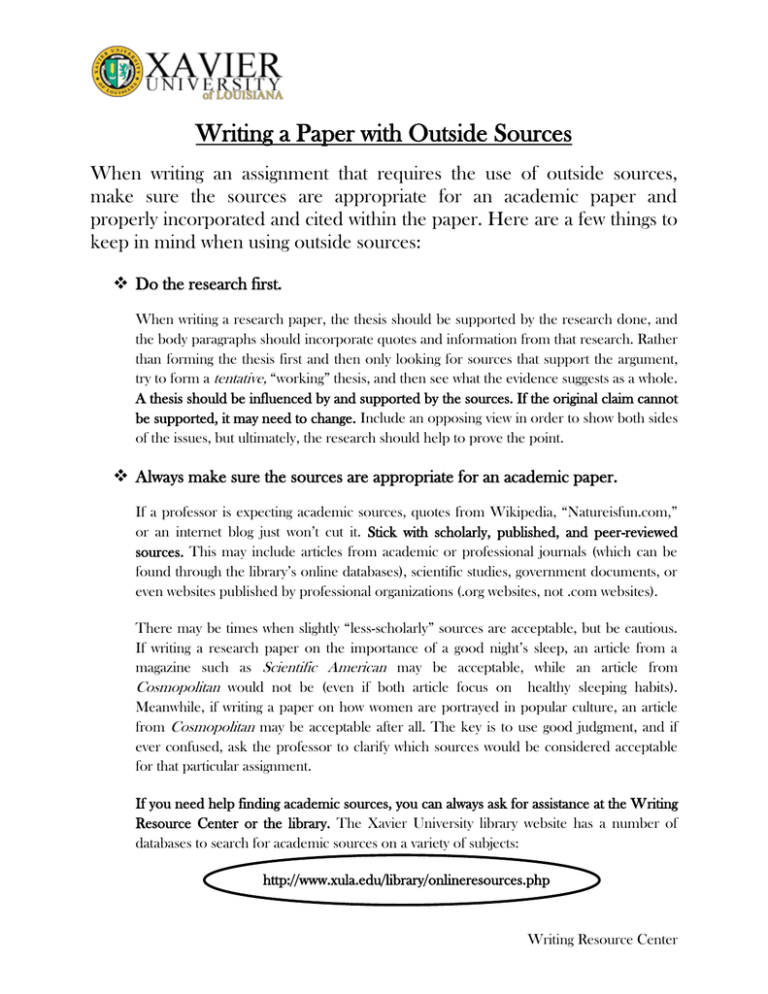

- #HOW TO PROPERLY CITE SOURCES IN RESEARCH PAPER HOW TO#
- #HOW TO PROPERLY CITE SOURCES IN RESEARCH PAPER PRO#
When Scout meets Boo Radley in To Kill a Mockingbird, she realizes that his reputation does not match his true character (Lee 85). The latter, sometimes called “in-text” citations, usually consist of a few details about the source, and are generally written in parenthesis at the end of the sentence where you referenced the source.

Where Do We Have Citations, and What are the Types of Citations?Ĭitations typically can be found in two places: at the end of a paper in a bibliography or reference list, and within the text. To help people find your unique perspective on your topic and create consistency throughout your work, it is always a good idea to use a specific, standardized citation style, such as APA format or MLA format. By backing up your ideas with credible sources, you can easily avoid the trap of plagiarism, and promote further research on their topic. Copying or directly referencing a source without proper citations can lead to not only a poor grade, but accusations of academic dishonesty. We have Google for that! What your project should aim to do is promote an original idea or put a spin on an existing idea, and use credible sources to promote that idea. The point of research projects is not to regurgitate information that can already be found elsewhere. Going above and beyond in your work is always a good idea! Citations Promote Originality and Prevent Plagiarism Citations serve as a natural way to place your work within in the broader context of a subject area, and are an easy way for your teacher or professor to gauge your commitment to the project at hand. This ensures that the sources you use receive proper credit for the author’s work, and that as the student, you receive deserved recognition for your unique contributions to the topic.
#HOW TO PROPERLY CITE SOURCES IN RESEARCH PAPER PRO#
Pro tip: Having many citations from a wide variety of sources related to your thesis indicates to your professor that you are working on a well-researched and respected subject.Ĭitations Give Credit to the Right PeopleĬiting sources ensures that your reader or teacher can differentiate your original thoughts from the ideas in your sources and of other researchers in your subject area.If you can do this, you are well on their way to winning over the reader to your side. Bonus points: If you can, find a way to cite a few sources that have the converse opinion or idea, and then demonstrate to the reader why you believe that viewpoint is wrong while backing up your claim up with sources.It also opens up room for fact-checking and further research. Here are just a few reasons why it is important for you to cite sources in your work: Citations Provide Hard Evidence of Your Thesis/IdeasĬiting sources that back up your claim, otherwise known as your thesis statement, creates credibility for you as a researcher. Citing sources is something you should always do. It doesn’t matter if you use MLA formatting, APA formatting, or any other citation style. However, correctly citing sources in your research projects will ensure that you receive a better grade and create something that uniquely contributes to the subject area you are studying. Having to write citations may seem like another boring step in the paper writing process. Popular styles include MLA formatting, Chicago style, and APA style.
#HOW TO PROPERLY CITE SOURCES IN RESEARCH PAPER HOW TO#
Please see the citation manual for your chosen style for more specifics on how to make your citations in that style. The exact information included in the citation depends on the citation style you are using. This information could be the author’s name, the publication date, or page numbers. It also describes those sources, and provides information that allows the reader to track them down. A citation is how you let your readers know that you used information from outside sources in your work. To begin, let’s examine what a citation actually is. Here’s a table of contents for this guide: But what exactly are citations? Why are they so important, and what are the different types? Read on for citation basics. You’ve probably heard your teacher or professor talk about the importance of including citations in your research papers.


 0 kommentar(er)
0 kommentar(er)
